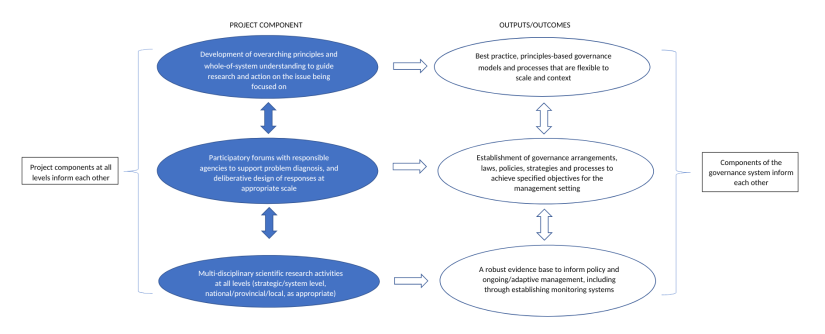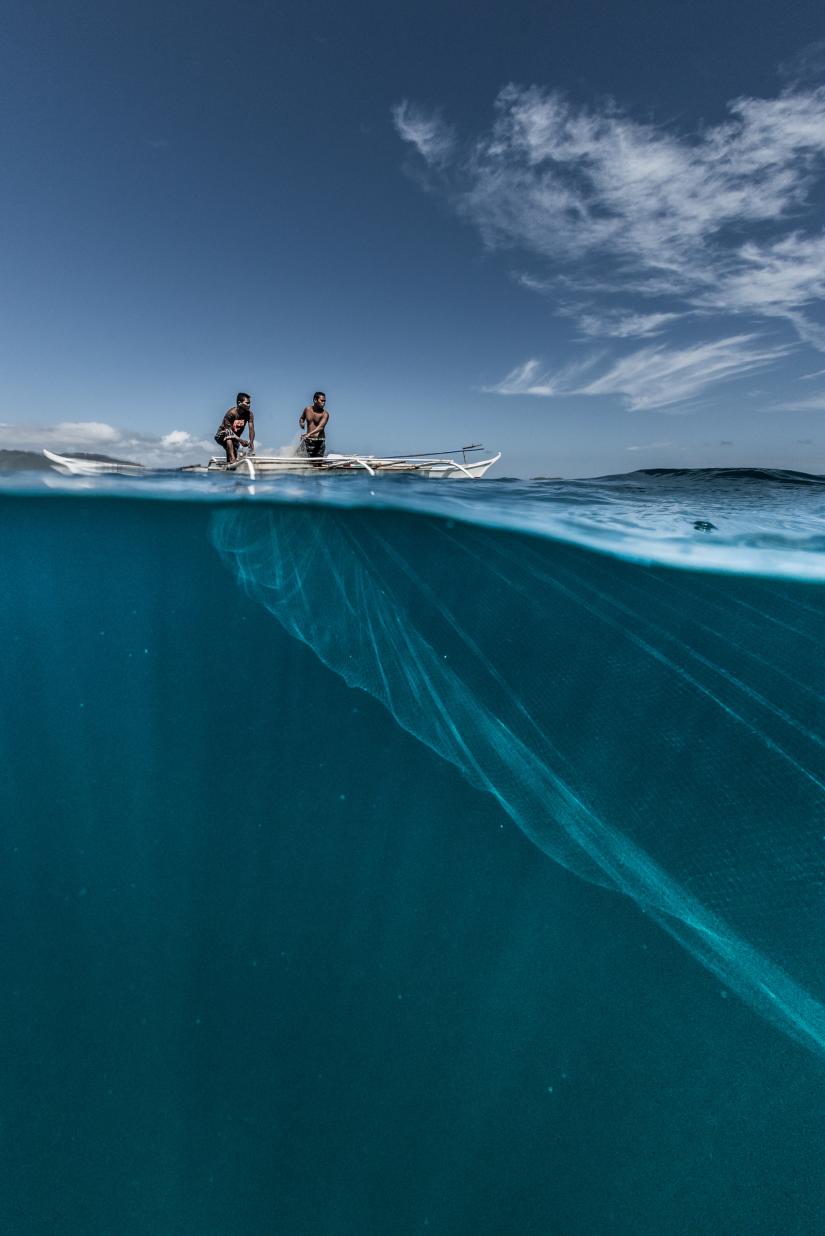As Southeast Asian nations plot their course towards sustainable social and economic development, the question of how systems of governance and decision-making should be designed to guide this process across diverse economic sectors is emerging as a key factor influencing success. A new UTS project focusing on coral reefs and fisheries in SE Asia, working in partnership with research institutions and government agencies in Indonesia and the Philippines, is seeking to address this critical governance question for marine sectors.
Governance design for sustainable development and natural resource management in South East Asia
Caption
A coastal fishing village typical of those found throughout Indonesia and the Philippines. Photo: Mike Fabinyi
While most sustainable development projects and supporting research focus on local level outcomes, the question of governance speaks to higher-level systems, policies and processes that inform decisions and guide management action across diverse settings. Project researchers Dr Nick McClean and Dr Dedi Adhuri, social scientists who specialise in participatory approaches to research-in-development, have collaborated to develop deliberative methods that link-local level research on ecosystems and communities, with the design of higher-level decision-making and policy frameworks.
“When we talk about governance, we are talking about all the elements of a system that influence sustainable development outcomes in a sector, from the institutions responsible and their laws and policies, to science and monitoring programs, to industries and communities on the ground.” McClean and Adhuri said.
“This can create a lot of complexity from the perspective of crafting effective solutions to common challenges. Local realities need to inform higher-level policies and processes, but higher-level policies are a critical enabler of change on the ground, so it can be a bit of a chicken and egg scenario in terms of where to start. For us, the solution lies in working at these levels simultaneously, but in well-defined and carefully considered ways.”
When we talk about governance, we are talking about all the elements of a system that influence sustainable development outcomes in a sector, from the institutions responsible and their laws and policies, to science and monitoring programs, to industries and communities on the ground.
Drawing on their previous work developing collaborative methods for problem diagnosis and decision-making in fisheries and marine conservation (see Eriksson, Adhuri et al., 2016, McClean, Adhuri et al., 2019, and Ross, Adhuri et.. al., 2019) they recommend the following for researchers seeking to address complex multi-scale sustainable development and natural resource management challenges:
- Develop a clear set of governance principles to provide strategic guidance to collaborative efforts
To navigate complex settings and identify system responses that can contribute to better sustainable development outcomes, an effective starting point is to develop a clear set of governance principles. This will assist in making transparent and well-reasoned decisions as the work unfolds, inform the design of practical solutions, and assist in keeping many moving parts working towards shared goals. It is important that these principles are informed by the real-world challenges, interests and specific factors that influence the lives of resource-dependent communities and key stakeholders, as well as the fundamental ecological dynamics that shape the behaviour of the system as a whole.
It is also important that these governance principles are informed by best practice from global experiences in responding to social-ecological challenges, so that proposed solutions or responses are both realistic in the context of the work and can progress collaborations and problem-solving in ways that advance on existing efforts.
- Foster policy and practice-oriented partnerships early in the project.
Work closely with governments, NGOs, scientists and local managers early in the project to develop commitment to the issue you are working on, and the guiding principles you have identified. It is important to understand what their responsibilities are, the “big picture” goals that their agencies must pursue, and the landscape they are operating within.
Importantly, encourage deliberation on what are the most important or strategic policy or management-level processes to achieve these goals – these are what a research project can support improvements to and therefore be linked with. Developing buy-in and identifying opportunities for practical application early means that the results from work on the ground are more likely to be adopted and utilised when results from research are available.
- Develop an evidence base that can support design of solutions, and ongoing adaptive management.
Both within the context of the research activities, and the ongoing policy and management processes of partner agencies, it is important to support the development of a robust evidence base, joint deliberation on the implications of that evidence, and ongoing decision-making that is adaptive in nature.
When implemented via a research project, this can mean convening forums in which the evidence generated by the research can be considered by relevant decision-makers, and the implications of findings for policy identified early. In the longer term, this means establishing new policy frameworks and ongoing monitoring systems that support management efforts, and designing regular, transparent decision-making cycles that include appropriate agencies and stakeholders. This supports clear and structured decision-making, while also allowing policies and management practices to evolve appropriately, in response to new data, new insights or unexpected outcomes.
A model for governance design in complex systems
In the context of a research project, McClean and Adhuri have developed a visual diagram which summarises the model their research project is operating under, which can be applied broadly to research initiatives focused on sustainable development and particularly the management of natural resources.

By breaking complex systems and processes each into manageable parts, they hope this model will help inform others efforts to develop research that can influence policy and practice in a practical, transparent and adaptive way.

‘Enhancing Marine Environmental Governance in Indonesia and the Philippines’ is a collaborative project between UTS, University of the Philippines, Western Philippines University, Macquarie University, IPB University Indonesia, National Agency for Research and Innovation Indonesia and the Indonesian Union of Traditional Fishers. It is funded by the Australian Government via the Department of Foreign Affairs and Trade, and the Australian Centre for International Agricultural Research.
References
Eriksson, H., Adhuri, D. S., Adrianto, L., Andrew, N. L., Apriliani, T., Daw, T., ... & Beare, D. J. (2016). An ecosystem approach to small-scale fisheries through participatory diagnosis in four tropical countries. Global Environmental Change, 36, 56-66.
McClean, N., Barclay, K., Fabinyi, M., Adhuri, D., Sulu, R., Indrabudi, T. (2019). Assessing tuna fisheries governance for community wellbeing: case studies from Indonesia and Solomon Islands. Report commissioned by the David and Lucile Packard Foundation, University of Technology Sydney, Sydney
Ross, H, D.S Adhuri, A Y. Abdurrahim, A. Phelan. (2019). Opportunities in community-government cooperation to maintain marine ecosystem services in the Asia-Pacific and Oceania. Ecosystem Services. 38.